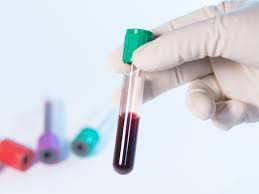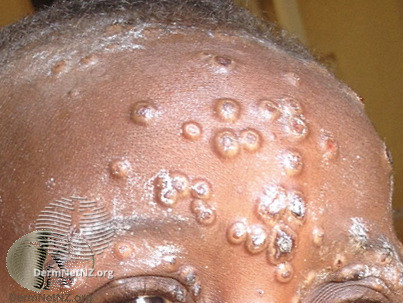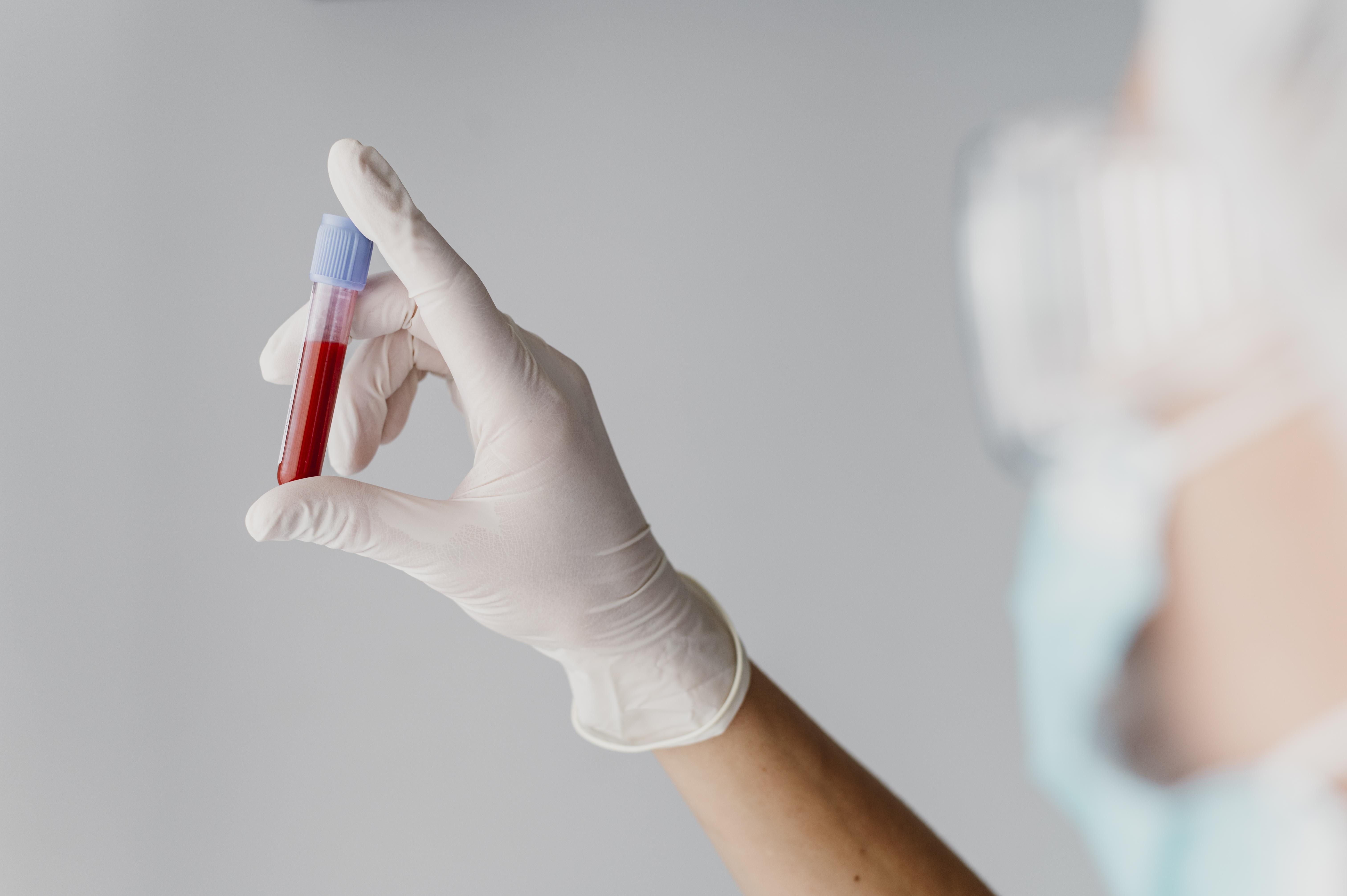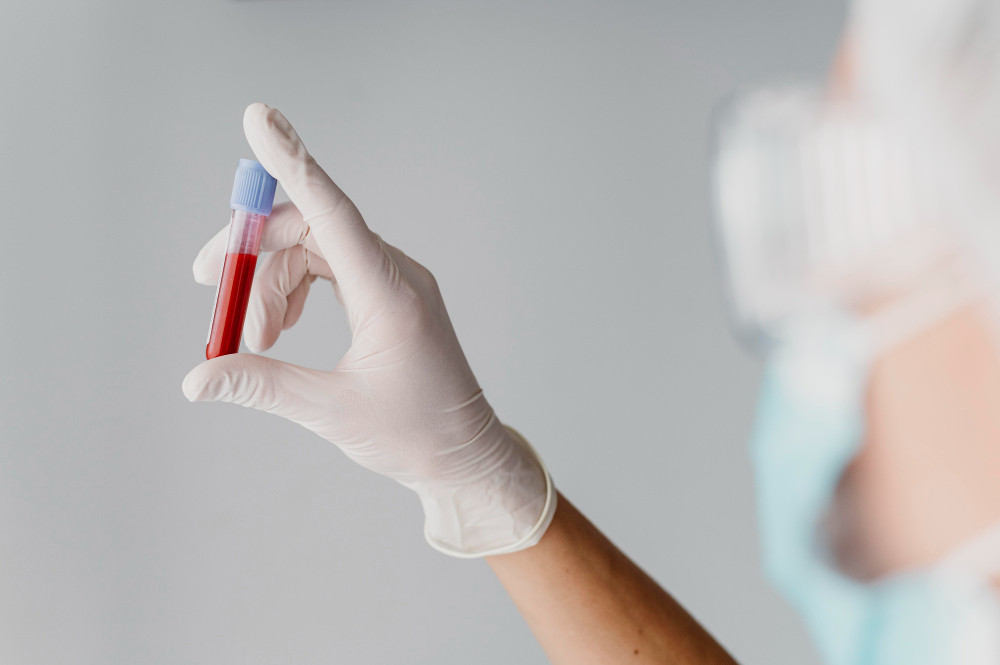Definisi
Pemeriksaan anti rubella IgM adalah pemeriksaan darah untuk mendeteksi adanya antibodi IgM dalam darah yang terbentuk setelah tubuh terinfeksi virus rubella.
Infeksi rubella yang disebut juga dengan campak jerman, bukanlah suatu penyakit serius untuk kebanyakan orang. Penyakit ini menyebabkan demam ringan dan ruam kulit yang akan hilang sendiri dalam beberapa hari. Sudah terdapat vaksin untuk penyakit ini, yaitu vaksin MMR (measles, mumps, rubella) atau MMRV (MMR + varicella). Namun pada wanita hamil, infeksi rubella dapat menjadi sangat serius. Jika Anda terinfeksi dalam empat bulan pertama kehamilan, bayi Anda dapat lahir prematur, atau mengalami gangguan penglihatan, pendengaran, maupun jantung.
Ketika tubuh terinfeksi oleh virus rubella, tubuh akan melawan infeksi dengan memproduksi dua jenis antibodi secara berurutan, yaitu IgM (Immunoglobulin M) dan IgG (Immunoglobulin G). IgM adalah antibodi yang muncul saat terjadi infeksi akut (mendadak). Jenis antibodi ini muncul dalam 3-7 hari setelah gejala muncul dan bisa menetap sampai beberapa minggu.
Setelah itu, tubuh akan memproduksi antibodi jenis IgG yang muncul beberapa hari setelah IgM dan bertahan seumur hidup pada individu tersebut. IgG memberikan kekebalan jangka panjang dan muncul setelah seseorang terinfeksi oleh virus rubella. Perlu diketahui bahwa proses vaksinasi juga bisa membuat seseorang memiliki antibodi IgM dan IgG.
Kombinasi pemeriksaan IgM dan IgG terkadang digunakan untuk mendeteksi bila ada infeksi yang sedang diderita atau yang baru saja terjadi.
Bila Anda tertarik untuk membaca lebih jauh mengenai infeksi rubella, Anda bisa membacanya di sini.
Indikasi
Pemerikaan darah anti rubella IgM dilakukan untuk melihat apakah seseorang memiliki antibodi terhadap virus rubella. Antibodi adalah protein yang diproduksi sistem kekebalan sebagai respon tubuh terhadap masuknya zat asing. Antibodi membantu melawan zat asing seperti kuman, virus atau mikroorganisme lainnya yang menginfeksi tubuh, dan menjaga Anda agar tidak sakit.
Pemeriksaan anti rubella IgM dapat dilakukan pada:
- Wanita yang merencanakan kehamilan atau sedang hamil atau sedang hamil trimester awal
- Bayi baru lahir dengan ibu yang dicurigai pernah terinfeksi rubella saat sedang hamil
- Bayi dengan kelainan bawaan lahir yang mungkin disebabkan oleh rubella
- Semua orang dengan gejala rubella
- Petugas kesehatan yang tidak pernah terkena rubella atau tidak pernah vaksin rubella
Kontraindikasi
Tidak ada kontraindikasi atau kondisi yang membuat seseorang tidak bisa melakukan pemeriksaan ini. Bila terdapat suatu kondisi pada lengan seperti infeksi atau memar yang menyebabkan pengambilan darah sulit dilakukan, sampel akan diambil di bagian tubuh lain.
Persiapan Sebelum Pemeriksaan
Anda tidak perlu persiapan khusus untuk menjalani pemeriksaan ini. Pemeriksaan ini bisa dilakukan dalam keadaan tidak berpuasa. Anda disarankan untuk melakukan konsultasi medis terlebih dahulu kepada dokter sebelum melakukan pemeriksaan. Pastikan dokter mengetahui semua obat, vitamin dan suplemen yang sedang Anda konsumsi. Hal ini meliputi antibiotik atau antivirus, obat yang bisa dibeli bebas tanpa resep, dan obat-obatan lainnya yang Anda konsumsi.
Prosedur Pemeriksaan
Tenaga kesehatan akan mengambil sampel dari pembuluh darah vena pada lengan Anda menggunakan jarum kecil. Petugas akan memakai sarung tangan khusus dan APD (Alat Pelindung Diri) saat mengambil sampel pemeriksaan.
Setelah jarum dimasukan, sejumlah kecil darah akan dikumpulkan ke dalam tabung khusus. Anda akan merasakan sedikit nyeri saat jarum masuk atau keluar. Namun, proses ini biasanya hanya berlangsung kurang dari 5 menit. Sampel darah yang telah didapatkan akan diperiksa menggunakan alat khusus di laboratorium.
Nilai Normal & Abnormal
Hasil pemeriksaan anti rubella IgM adalah sebagai berikut:
- ≤19,9 AU/mL: anti IgM rubella tidak terdeteksi
- 20,0 – 24,9 AU/mL: tidak bisa ditentukan
- ≥25,0 AU/mL: anti IgM rubella terdeteksi
Bila hasil pemeriksaan tidak bisa ditentukan, disarankan untuk melakukan pemeriksaan ulang dalam 10-14 hari. Jika terdeteksi anti IgM rubella, hal ini dapat mengindikasikan adanya infeksi yang sedang berlangsung atau baru saja terjadi. Rentang nilai di atas dapat bervariasi antar laboratorium, sehingga Anda sebaiknya berkonsultasi ke dokter mengenai hasil pemeriksaan Anda.
Hasil & Saran (Pemeriksaan Lanjutan)
Hasil pemeriksaan anti rubella IgM yang positif menandakan bahwa Anda memiliki antibodi IgM terhadap virus rubella dalam darah Anda. Salah satu penyebabnya adalah Anda kemungkinan baru saja terinfeksi. Bayi tidak dapat menerima antibodi IgM dari ibunya. Oleh karena itu, jika seorang bayi baru lahir memilki hasil pemeriksaan yang positif, hal ini berarti bayi tersebut terinfeksi sebelum atau sesaat setelah lahir.
Namun, karena rubella bukan merupakan penyakit yang sering umum ditemukan, maka hasil tes ini dapat juga merupakan hasil positif palsu. Hasil positif palsu berarti Anda kemungkinan terinfeksi oleh virus lainnya, atau tes bereaksi terhadap protein lain di dalam tubuh Anda. Pemeriksaan penunjang lain beserta kondisi medis Anda dapat membantu mengonfirmasi hasil tes Anda.
Bila hasil pemeriksaan anti rubella IgM negatif, umumnya menandakan bahwa Anda tidak terinfeksi rubella. Namun, orang dengan kekebalan tubuh yang lemah (misalnya pasien HIV atau dalam terapi obat penekan sistem imun) dapat terinfeksi namun tidak memproduksi cukup antibodi yang dapat terdeteksi pada pemeriksaan.
Hasil IgM positif disertai dengan IgG negatif dapat dijadikan dasar diagnosis untuk infeksi rubella, namun harus dikonfirmasi dengan munculnya (atau peningkatan signifikan) kadar IgG dalam 1-3 minggu kemudian.
Konsultasikan ke Dokter yang Tepat
Jika Anda memiliki hasil pemeriksaan anti rubella IgM yang positif, Anda dapat berkonsultasi ke dokter umum. Dokter akan melihat hasil pemeriskaan dan gejala yang Anda alami untuk memberikan penanganan yang tepat. Penyakit ini bukanlah penyakit yang berbahaya untuk orang dengan sistem imun yang normal.
Sementara itu, jika Anda sedang merencanakan kehamilan atau sedang hamil dan memiliki hasil yang abnormal, sebaiknya Anda berkonsultasi ke dokter kandungan. Hal ini penting untuk mencegah kemungkinan kelainan bawaan lahir pada bayi Anda.
Mau tahu informasi seputar penyakit lainnya? Cek di sini, ya!
- dr Hanifa Rahma
Rubella IGG and IGM - glossary: Laboratory, Radiology, sleep and genetic (no date) Biron. Available at: https://www.biron.com/en/glossary/rubella-igg-and-igm/ (Accessed: 18 May 2023).
Rubella IGG antibody test: Purpose, procedure, and results (2021) WebMD. Available at: https://www.webmd.com/a-to-z-guides/rubella-test-antibodies (Accessed: 18 May 2023).
Rubella antibodies, IGG and IGM: Arup Laboratories test directory (no date) Rubella Antibodies, IgG and IgM | ARUP Laboratories Test Directory. Available at: https://ltd.aruplab.com/Tests/Pub/0050552 (Accessed: 18 May 2023).












